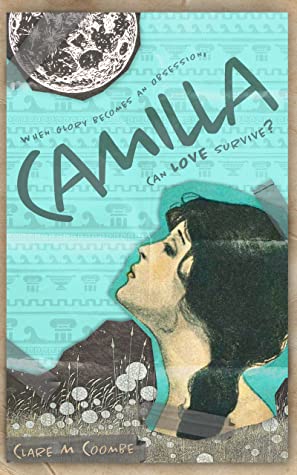As a fellow classicist, I was excited to read Camilla by Clare M. Coombe. I have been loving the emergence of different re-imaginings of classical mythologies and jumped on this opportunity. Camilla introduces one of the lesser-known female heroes, Camilla, incorporating a fresh queer voice amidst the typical masculine heteronormative narratives that tend to dominate interpretations of this time period. Continue reading to get my take on this book.
Summary
A peaceful nymph falls in love with a powerful mortal girl, but as her lust for glory grows, can their love survive?
Camilla is an exiled princess, blessed with power from the goddess Diana. Acca is a nymph who has fled the world of men and marriage. Thrown together by Diana, their love is passionate and their woodland lives are magical. Yet Camilla dreams of becoming a hero as great as Achilles and war threatens peaceful Italy.
Does she love glory more than she loves Acca? And will glory come at a terrible price?
Did you love Madeline Miller’s The Song of Achilles or Circe, Ursula K Le Guin’s Lavinia, or Margaret Atwood’s Penelopiad? Have you recently read Pat Barker’s The Silence of the Girls or Natalie Haynes’ A Thousand Ships? Maybe you keep going back to Virgil’s Aeneid, where Camilla’s story was first told. If any of these is you, Camilla and its queer feminist lens on mythology should definitely be your next read!
Camilla is the first novel in the series: The Song of the Siren, the Voice of the Muse (Re-imagining Greek and Roman Mythology). Look out for the next later in 2021!
Review
(Disclaimer: I received this book from the author. This has not impacted my review which is unbiased and honest.)

Camilla follows the story of Acca, a nymph and eventual lover of the human Camilla, who was promised to the goddess Diana by her father, the exiled Volsci king. I took a slight issue with the novel being named after Camilla rather than Acca. I understand that legend has remembered Camilla and that Acca did not exist in Virgil’s Aeneid, which Camilla is based on, but I felt that it took away the importance of the narrator.
I enjoyed how Coombe incorporated information from other myths, such as the different stories that related to the Trojan War and the story of Aeneas. In the beginning, much of this storytelling was through the lens of Diana as she was the only news source for the isolated nymphs and Camilla. Initially, I felt as if we were being told and not shown these stories, but that feeling did eventually subside. I came to terms that this is how Acca and Camilla were experiencing these current events thus it was only fitting for the delivery to be the same for the audience.
I will be honest, I did not like the character Camilla. That is not the fault of Coombe, but instead, I think was her intention. Camilla knows she has a kingdom that is rightfully hers outside of their woodland haven and that she wanted more beyond the life of Diana’s nymphs. Camilla’s character became more and more masculine as she involved herself in the imminent war in Italy due to the Trojan invader, Aeneas. I felt that this took away from the feminist lens of the narrative, turning Camilla into just another male Italian hero.
There is one particular scene where Acca, generally a quiet and subdued individual, takes a stand. She gives an impromptu speech against the Italian men and Camilla who sought to deride and discount the actions and emotions of the Italian women, rebelling against the possibility of giving up themselves and their daughters to the hostile Trojan invaders. This was very out of character of Acca and at times I even felt like Acca was only a fly on the wall for many scenes throughout the novel. Acca, however, finally had a voice in this hyper-masculine war camp that she found herself and a select few nymphs in. It was refreshing to have that character development, however brief this victory was.
Overall
I did enjoy Camilla by Clare Coombe. It is always refreshing to read about characters that were seemingly minor in mythology and give them a whole new story — especially giving voices to queer and feminist folk. I will also admit to not knowing much about the story of Camilla (although a trained Classist, this was not my time period of choice), so it was also interesting to delve into this legend with little background on my part.
Find Camilla on Goodreads and Amazon.